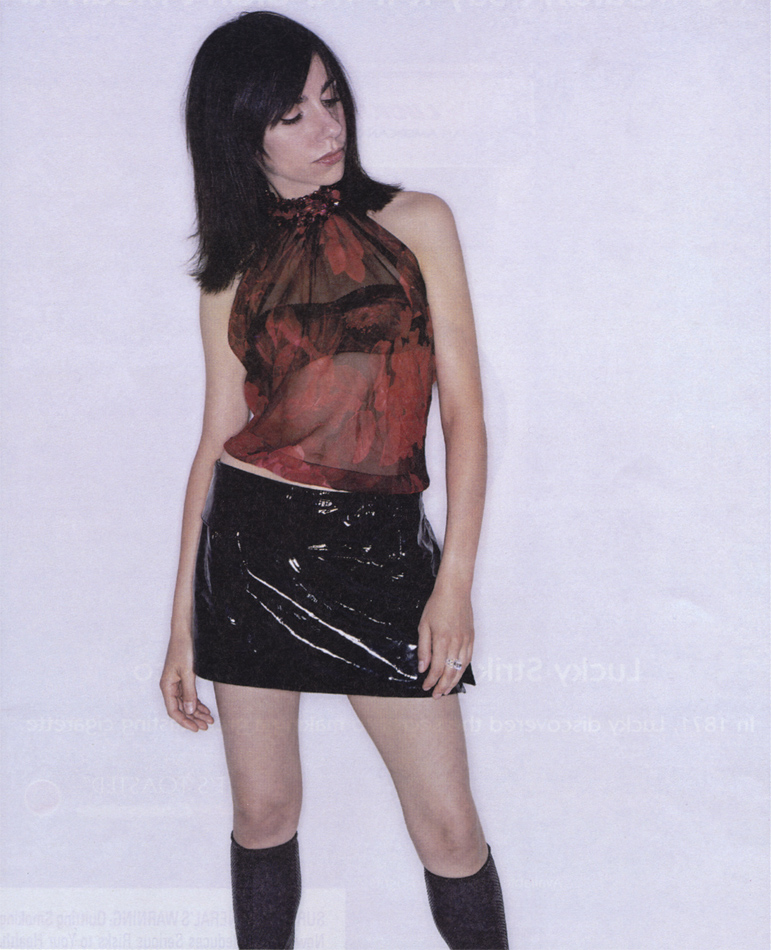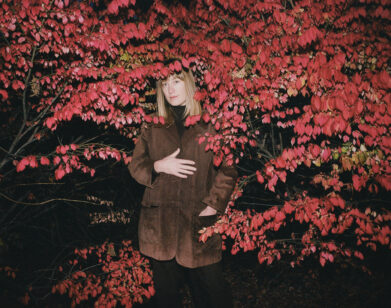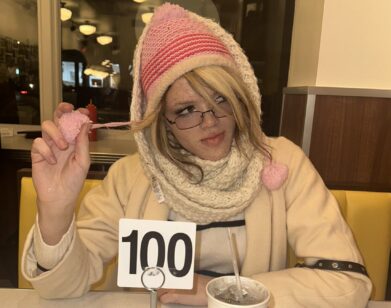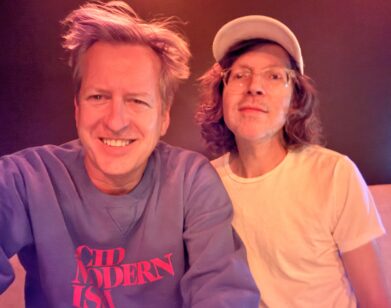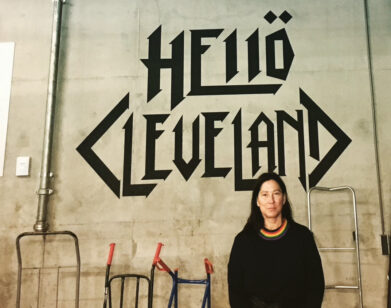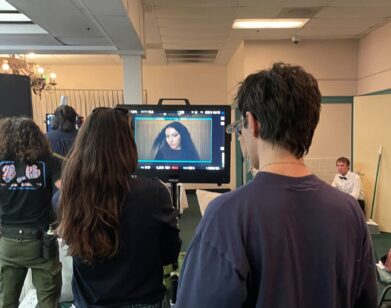New Again: PJ Harvey
ABOVE: PJ HARVEY.
Always pushing boundaries, singer-songwriter, poet, composer, and occasional artist PJ Harvey announced on Monday that her anticipated follow-up to Let England Shake (2011, winner of the Mercury Prize) will completely break the barrier between studio-produced LPs and live albums. Through a four week long living art exhibition “Recording in Progress,” Harvey, alongside her band, producers, and engineers will record the forthcoming album during 45-minute sessions while encased in a glass studio at the Somerset House in London. A lucky 3,000 ticketholders (tickets for the sessions sold out in a matter of minutes) will become witnesses to this fishbowl setup, where live sound art will become a fully produced, studio album.
We looked through our archives and found an interview with Harvey following the release of her album Stories From the City, Stories From the Sea in December 2000.
PJ Harvey: Seeking Out the Soul of Rock-‘n’-Roll
By Hilton Als
Racism seduces us with its desire to categorize, shutting out the living and breathing and “different” world all around us. I grew up in a largely black community during the ’70s and ’80s that scoffed at “white” music. That music—folk, rock, some disco—was considered soulless, aberrant, just one more example of the Caucasian’s desire to scream and yell and demand whatever their privilege and perpetual adolescence dictated they should demand. This view—the only view of popular white music I had for many years—was challenged when I left my old neighborhood and entered the world my family had turned their backs on, largely because of the way it had treated them. At school, I was introduced to the rock-based singer-songwriters. None of them prepared me, though, for the depth of feeling, nuanced elocution, and powerful feminist stance of PJ Harvey, the first white soul singer since Laura Nyro to combine the blues with a folk-infused rock-‘n’-roll idiom. With the recently released Stories From the City, Stories from the Sea (Island), Harvey–young (30 years old), fragile, and resilient–has once again fused the music I come from with the sounds she grew up with (Captain Beefheart, Bob Dylan), creating a soundscape one wants to wander through again and again, like the moors one imagines her walking over in her native England, singing out, singing softly, always in her own way.
HILTON ALS: One of the extraordinary things about the new album is the studio production. It seems to me that the music is working more in synthesis with technology than on previous albums.
POLLY JEAN HARVEY: I don’t think I was experimenting as much with electronic things this time really; less, I would say, than on the last two albums. This album in terms of recording was quite straightforward. It probably sounds more complex just because there’re a lot more melodies going on and a lot more melodic instrumentation–I think more than I’ve ever done.
ALS: Were you using more strings or guitars?
HARVEY: The only players on the record were myself, Rob Ellis, and Mick Harvey, and between the three of us we can pretty much play any instrument you can think of. I actually wanted to make a record that was very lush sounding, highly produced, recorded well, with clean, crisp, direct sounds. Where I think in the past I was much more interested in debasing sounds as much as possible and making them certainly not lush and pleasant, just the opposite.
ALS: Does the music dictate how you’re going to produce the record?
HARVEY: Yes, always. When I’m writing–usually when I’ve just finished a new album–my head’s already into writing the next. I think that the actual nature of the songs on this album is quite different. Anyway, I wrote the songs in a different way. I went back to writing songs just with guitar and voice, and the songs had to be strong enough to work at that level. I wasn’t relying at all on equipment, I wasn’t writing in the studio, I was just purely writing in time, if you like. I think that’s quite a good basis for writing strong songs.
ALS: Your last album, 1998’s Is This Desire?, contained very strong narratives; they were like psalms. Stories From the City feels much less like you describing other people than you describing yourself.
HARVEY: During the writing of the album, I had been concentrating on writing a lot of poetry, which was a new thing for me. I’m finding that writing poetry is strengthening my songwriting, because you’re learning to make a piece of writing work on a page with nothing else. I was also finding within poetry I felt a lot more free to write about very different matters, to write about social issues or things that are going on around me.
ALS: Were you inspired by reading poetry?
HARVEY: I’d been reading a lot of Billy Childish–he used to play with a band called Thee Headcoats. I was also reading a lot of Ted Hughes, which I’ve always done, and Wilfred Owen, a beautiful, beautiful writer.
ALS: This new album feels very novelistic, like chapters. Would you ever consider writing prose, writing stories?
HARVEY: I do write a lot of prose. It’s not disciplined enough yet that it’s actually become stories, or short stories. The idea of writing a novel seems impossible. [laughs]
ALS: Don’t be scared. I thought you were terrific in Hal Hartley’s movie The Book of Life. Would you like to act more in films?
HARVEY: Oh, I would love to. I’ve been offered things since Hal’s film, but none of the parts have been right.
ALS: What kind of characters would you like to play?
HARVEY: Well, I don’t want to be typecast as an angst-ridden female rock musician.
ALS: Right. [laughs] You have enough of that on your own.
HARVEY: Exactly.
THIS INTERVIEW ORIGINALLY RAN IN THE DECEMBER 2000 ISSUE OF INTERVIEW.
New Again runs every Wednesday. For more, click here.

